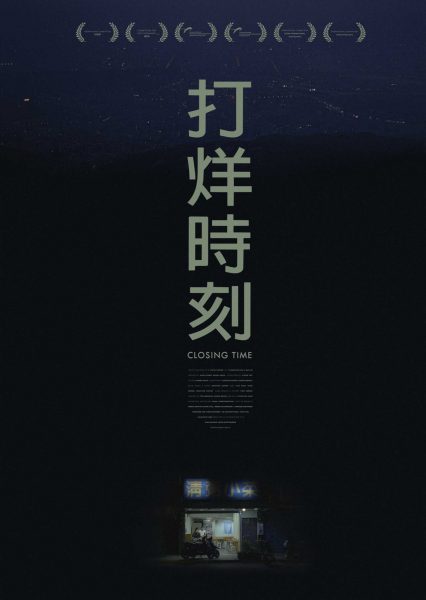

“Closing Time” poster. Courtesy of Beauvoir Films
By Zara Zangana
Contributor
Writer/director Nicole Vögele’s second feature-length documentary (or what I would call an experimental documentary), was part of the official selection featured in the Ann Arbor Film Festival. Held at the Michigan Theater, Ann Arbor’s home for arthouse film, “Closing Time” fit right in.
Vögele’s “Closing Time” was, for lack of a better word, interesting—in every sense of the word.
The film consists of very random, beautiful shots compiled to make one long, cinematic journey that doesn’t actually go anywhere.
If you got up to use the restroom or accidently fell asleep for a moment during the film, you would not be lost when you returned, because you were already lost before you left. In some ways, “Closing Time” was this half-hauntingly beautiful, half-mysterious thing, that may have been intended to leave us feeling confused or wanting an actual plotline once the credits rolled. Maybe Vögele’s intention was to incite curiosity in her viewers.
The film-making of this piece was very beautiful on a technical level. The location shots were gorgeous; I felt almost as if I was there. The shots of Mr. Kuo and Mrs. Lin working in their shop were stunning—I especially liked the shots of Mr. Kuo chopping vegetables. The way the knife hit the counter every time was like music.
The film was shot as if everything was a character: the ocean, the vegetables, the motorcycles, the quarters going in and out of crane machines. Everything seemed alive in every shot, which brought a “Call Me By Your Name” (2017, dir. Luca Guadagnino) sort of vibe to the film.
The symmetrical shots were lovely; I began to see a pattern with these. There were symmetrical shots of beautiful landscapes, which I took to symbolize life.
There were also two specific symmetrical shots of what I believe were dead pig carcasses, which I recognized as symbolizing death. These shots were particularly interesting to me, as I love when filmmakers use reoccurring shots to convey symbolism.
In terms of storyline or plot, there was none. “Closing Time” definitely strays away from any sort of narrative paradigm, even for a documentary.
The film was basically a bunch of random (but gorgeous) shots, and some scenes of the film’s subjects speaking with each other. Sure, they were really interesting scenes, but I quickly grew bored of watching the same thing happen over and over. However, I do realize that Vögele’s goal may have been to illustrate repetitiveness, which is another reason I enjoyed all the symmetrical shots. I interpreted them to symbolize mirroring, or life being the same forever.
Still, I felt like the film was too long. My brain wanted to turn off after an hour or so, and I spoke with other viewers who felt the same.
“Closing Time’s” editor, Hannes Bruun, clearly knows what he’s doing, but he and Vögele should have ended the film earlier. I would much rather watch a shorter version of this film with the same concept and be left wanting to know more, rather than sit through an hour and 56 minutes and grow bored.
However, this could be a groundbreaking thing for a filmmaker to do—create a film that consists of random shots and piece it together with some dialogue here and there. I really want to like this idea; and to an extent, I do.
“Closing Time” takes you on a journey, but during every journey comes a time when you get tired and just want to go home. Vögele had a wonderful idea with an interesting topic. She just didn’t know when to stop. Instead of leaving her audience wanting more, she spooned more into their mouths after they already said they were full. Still, Vögele has a beautiful eye for film, and her work shows that.
Patrick Sullivan | Contributor WCC students joined hundreds of other protesters for a March 14…
Meals were longtime tradition at monthly meetings Lily Cole | Editor The long-standing, but little-known…
Abigail Gibb | Contributor President Donald Trump has signed over 100 executive orders since the…
Beck Elandt | Staff Writer Photos by Courtney Prielipp While artificial intelligence can produce a…
Yana McGuire and Sasha Hatinger | Staff Writers Recent attacks against Diversity, Equity and Inclusion…
Sasha Hatinger | Staff Writer News is available to be consumed in a diverse selection…